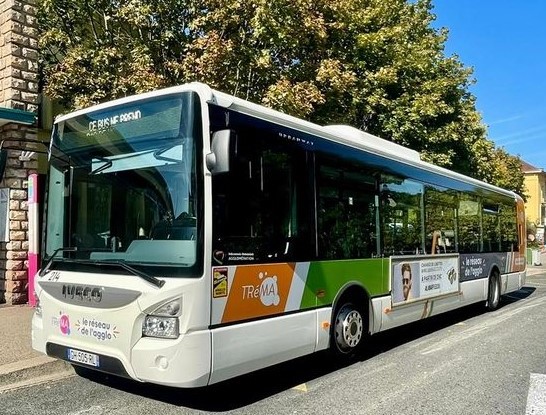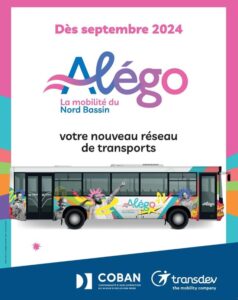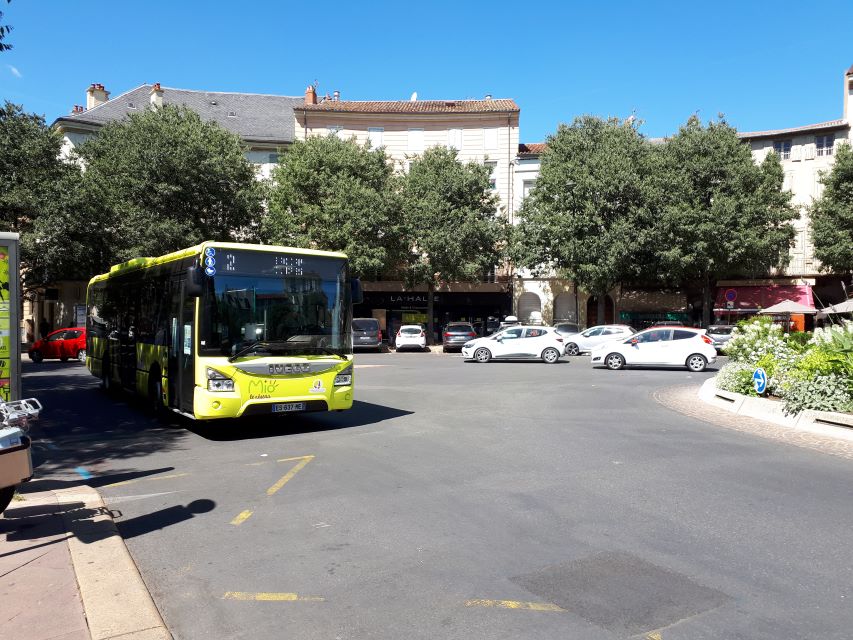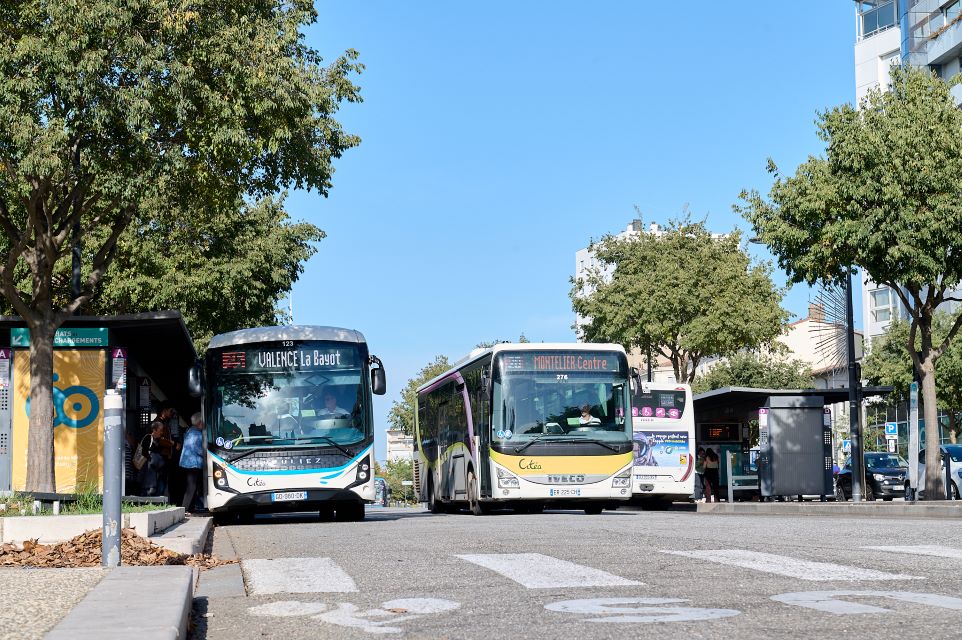“Transdev, already well established in 12 of France's 13 metropolitan regions, is consolidating its position in France with one constant objective: wherever we are, we are implementing all the levers at our disposal to enable our passengers to travel better and differently. We are implementing the same dynamic by responding to three simultaneous challenges: that of recruiting drivers, the lifeblood of our business. We are men and women at the service of mobility for all; that of purchasing power, by offering solutions accessible to the greatest number; and finally, that of the climate, with vehicles with a reduced carbon footprint.”
Edouard Hénaut, CEO of Transdev France.
Press release
Download press releaseTransdev and the Citéa network in Valence-Romans (Ardèche, Drôme)
In April, Valence Romans Mobilités (VRM) renewed its contract with Transdev Valence Mobilités to operate the Citéa public transport network for a further six years, starting next July. The range of mobility services will be increased by more than 10% to eventually reach over 13 million annual journeys on the network serving the 67 municipalities of the conurbation, including Valence and Romans-sur-Isère. This new offer will provide access to a regular bus service less than 300 m away for almost 80% of the agglomeration’s inhabitants. Beyond urban areas, the Citéa offer for suburban communities will be increased by 15% compared with 2023, notably through the extension of Transport on Demand (TOD) services. The active mobility offer will also be strengthened with, by 2025, a strong increase in the number of self-service and long-term rental bicycles, including electrically assisted bicycles, to reach a total fleet of almost 800 bicycles.
In 2026, the Citéa network will be completed by a Tram Bus line (Bus Rapid Transit – BRT) to consolidate the backbone of urban mobility. By the end of 2030, the network will be entirely diesel-free, in favor of a low-emission energy mix using biofuel, biogas and battery-powered electric buses. This strategy is accompanied by the signing of a 100% renewable electricity contract, to power the fleet of 51 electric buses.
Transdev and the TRéMA network in Mâcon (Saône-et-Loire)
In early April, Transdev renewed its contract with Mâconnais Beaujolais Agglomération to operate the TRéMA public transport network for a further five years, starting next July. The new contract will see a denser network and a 30% increase in the commercial offer, including two new bus lines. Energy transition is also at the heart of the project. The fleet of 20 buses to be operated by 2029 will be completely decarbonized – 100% zero-emission – with 11 electric buses and 9 standard electric hydrogen fuel cell buses.

Transdev and the Alégo network for COBAN (Gironde)
Already operating public transportation for the southern Arcachon basin, Transdev was awarded a seven-year contract in early April to operate public transport for the Communauté d’agglomération du Bassin d’Arcachon Nord (COBAN), starting in September 2024. The new Alégo network will include 10 bus routes and a ToD (Transport ON Demand) service serving all eight municipalities of the agglomeration, with the creation of 100 jobs to provide the expected quality of service. With this network, almost 80% of the population will be less than 500 m from a bus line. This service will be complemented by an express bus line (Line 601), managed by Nouvelle-Aquitaine Mobilités, linking Lège-Cap-Ferret to Bordeaux. By 2025, all buses will be low- or zero-emission, contributing to the decarbonization of mobility.

Transdev and the Mio network in Millau Grands Causses (Aveyron)
At the end of March, Transdev was awarded a six-year contract by the Communauté de Communes de Millau Grands Causses, in joint venture with Autocars Causse, to operate and manage the new Mio public transport network, starting next September. The network will offer four bus routes, including a new one, providing a structured network for this area of 30,000 inhabitants. This enhanced mobility offer will significantly increase ridership. Finally, the new bus fleet will run exclusively on HVO (hydrogenated vegetable oil) biofuel, thus reducing emissions.


